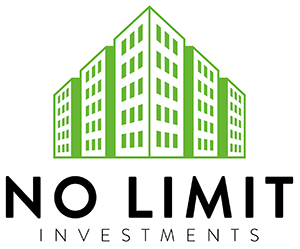What Are Equity-Based Property Loans and Why Do They Matter?
Equity-based property loans are financing tools that allow real estate investors to borrow against the value of their existing property. Unlike traditional loans, which often rely heavily on income verification, credit scores, or tax returns, equity-based lending prioritizes the property’s equity as collateral. For investors, this opens doors to funding opportunities that might otherwise be inaccessible under conventional underwriting requirements (Consumer Financial Protection Bureau, 2023).
At their core, these loans transform existing property value into working capital. Whether an investor owns a rental unit, commercial space, or residential property, the built-up equity can be unlocked to fund new acquisitions, property improvements, or debt consolidation. By leaning on equity, rather than solely on income, investors gain flexibility in expanding their portfolios.
How Do Equity-Based Property Loans Differ from Traditional Lending?
Traditional mortgages and loans typically emphasize strict financial metrics such as employment history, debt-to-income ratios, and FICO scores. While these metrics are important, they can disqualify capable investors who may have significant property value but less conventional income streams.
Equity-based property loans, on the other hand, evaluate the property itself. Lenders primarily focus on:
- Current market value of the property.
- Loan-to-value ratio (LTV) to ensure safe lending limits.
- Investor’s plan for deploying the borrowed capital.
This approach makes it possible for seasoned investors, entrepreneurs, and landlords to secure funding quickly and efficiently. For example, No Limit Investments provides flexible solutions such as Fix & Flip Loans and Buy & Hold Mortgages, which work hand in hand with equity-based strategies to accelerate investment growth.
How Can Investors Build Wealth Through Equity-Based Property Loans?
The power of equity-based financing lies in leverage. Instead of leaving property equity idle, investors can put it to work:
- Funding acquisitions: Equity-backed capital can serve as a down payment or full financing for new property purchases.
- Renovations and improvements: Using products like BRRRR Financing (Buy, Rehab, Rent, Refinance, Repeat), investors can transform underperforming assets into high-value properties.
- Portfolio diversification: Investors can expand into different real estate classes, residential, commercial, or mixed-use, without needing to liquidate other assets.
By strategically reinvesting equity, wealth compounds over time. The borrowed funds help grow rental income, increase property appreciation, and ultimately expand long-term net worth (Federal Reserve, 2022).
How Do Equity-Based Property Loans Help Mitigate Risk?
While leverage always introduces some risk, equity-based loans can actually reduce certain vulnerabilities when used responsibly:
- Diversification lowers exposure: By tapping equity to purchase additional properties, investors spread risk across multiple income-producing assets.
- Liquidity in uncertain markets: Equity-based loans provide quick access to cash, which can help investors cover unexpected costs, avoid foreclosure, or seize sudden opportunities.
- Flexible refinancing: Options like Cash Out Refinance let investors restructure debt, lower payments, or free up cash for reinvestment.
Mitigation is achieved not by avoiding debt but by managing it wisely. With the right terms, these loans allow investors to remain resilient in fluctuating real estate cycles.
What Role Do Loan-to-Value Ratios Play in Equity-Based Property Loans?
The loan-to-value ratio (LTV) is a central metric in equity-based lending. It represents the percentage of the loan compared to the property’s appraised value. For example, if a property is worth $400,000 and the lender allows a 70% LTV, the maximum loan amount is $280,000.
A lower LTV generally signals lower risk for lenders and greater security for investors. Managing LTV carefully ensures that an investor does not overleverage their portfolio. Lenders like No Limit Investments provide tailored Real Estate Financing Solutions that guide borrowers toward safe LTV thresholds while maximizing available capital.
How Can Equity-Based Loans Work With Popular Investment Strategies?
Equity-based loans are not stand-alone tools—they integrate seamlessly with tried-and-true investment methods:
- Fix & Flip: Investors borrow against equity to buy undervalued properties, renovate them, and sell for profit.
- Buy & Hold: Equity funds can be used to purchase long-term rental properties, creating steady cash flow.
- BRRRR Strategy: After rehabbing and renting out a property, investors can refinance and pull equity to repeat the cycle.
- New Construction: Equity loans can provide upfront capital to build from the ground up, aligning with New Construction Loans designed for development projects.
Each strategy benefits from the flexibility that equity-based lending provides, allowing investors to scale efficiently without waiting for traditional financing approvals.
What Are the Benefits of Using Equity-Based Property Loans?
Equity-based loans offer a unique mix of speed, accessibility, and adaptability:
- Fast approvals compared to conventional banks.
- Credit flexibility, since collateral is the primary focus.
- Access to larger sums of capital, tied directly to the property’s market value.
- No restrictions on how capital can be used, giving investors freedom to pursue diverse opportunities.
These benefits align with the broader suite of financing services available at No Limit Investments, where investors can choose solutions like DSCR Loans (Debt Service Coverage Ratio loans) that simplify underwriting by focusing on rental income rather than personal income.
What Are the Potential Drawbacks or Risks Investors Should Consider?
As with any financial product, equity-based loans are not risk-free. Some considerations include:
- Higher interest rates than conventional mortgages.
- Risk of overleveraging if equity is used aggressively without proper planning.
- Market downturns could reduce property value, shrinking available equity.
- Repayment pressure, especially if the borrowed funds do not generate expected returns.
Responsible investors use these loans as strategic tools rather than quick fixes. Conducting a rental property cash flow analysis before borrowing helps ensure the new debt aligns with sustainable income.
How Can Investors Access Equity-Based Property Loans Today?
Equity-based property loans are increasingly accessible through specialized lenders who understand investor needs. No Limit Investments, for instance, offers a streamlined process with solutions such as:
- Fix & Flip Loans for short-term projects.
- Buy & Hold Mortgages for long-term rentals.
- BRRRR Financing for portfolio expansion.
- Cash Out Refinance to unlock equity.
- DSCR Loans for simplified underwriting.
- New Construction Loans for ground-up projects.
- Comprehensive Real Estate Financing Solutions to tailor funding.
By combining these options with equity-based lending principles, investors gain a toolkit for scaling their portfolios efficiently and sustainably.
Why Should Investors Partner With No Limit Investments?

If you are ready to take the next step in your real estate journey, equity-based property loans can be the key to unlocking your portfolio’s potential. With customized loan programs and a focus on investor success, No Limit Investments provides the resources, expertise, and guidance you need to leverage your equity into lasting wealth. Call now!
Whether you are flipping, building, refinancing, or expanding your holdings, the right financing partner ensures you are never limited in your opportunities. Visit No Limit Investments today to discover how equity-based property loans and their full range of services can help you achieve financial freedom.
Final Thoughts
Equity-based property loans represent more than just access to capital, they are a strategy for building long-term wealth while managing investment risk. By unlocking property value and reinvesting it into new ventures, investors can scale faster, diversify portfolios, and remain resilient in uncertain markets. When paired with comprehensive solutions like those from No Limit Investments, equity-based lending becomes not just a tool but a pathway to financial independence.
Works Cited
Consumer Financial Protection Bureau. What is home equity? CFPB, 2023, www.consumerfinance.gov/ask-cfpb/what-is-home-equity-en-99/.
Federal Reserve. Survey of Consumer Finances: Ownership of Real Estate by Income and Wealth. Board of Governors of the Federal Reserve System, 2022, www.federalreserve.gov/econres/scfindex.htm.
U.S. Department of Housing and Urban Development. The LTV Ratio in Lending Decisions. HUD, 2023, www.huduser.gov.
Frequently Asked Questions (FAQs)
- What is an equity-based property loan?
An equity-based property loan is a financing option that allows investors to borrow against the value of their existing property, using the equity as collateral. - How do equity-based property loans help investors build wealth?
They unlock capital for acquisitions, renovations, or portfolio expansion, enabling investors to generate more rental income and appreciation over time. - What risks come with equity-based property loans?
Risks include potential overleveraging, higher interest rates compared to traditional mortgages, and property value fluctuations that may reduce available equity. - Can equity-based loans work with strategies like Fix & Flip or BRRRR?
Yes. Equity-based loans are flexible and can fund strategies such as Fix & Flip projects, Buy & Hold rentals, BRRRR rehabs, and even New Construction developments. - Where can investors access equity-based property loans?
Investors can explore tailored financing solutions at No Limit Investments, which offers products like Fix & Flip Loans, BRRRR Financing, DSCR Loans, and Cash Out Refinance.







